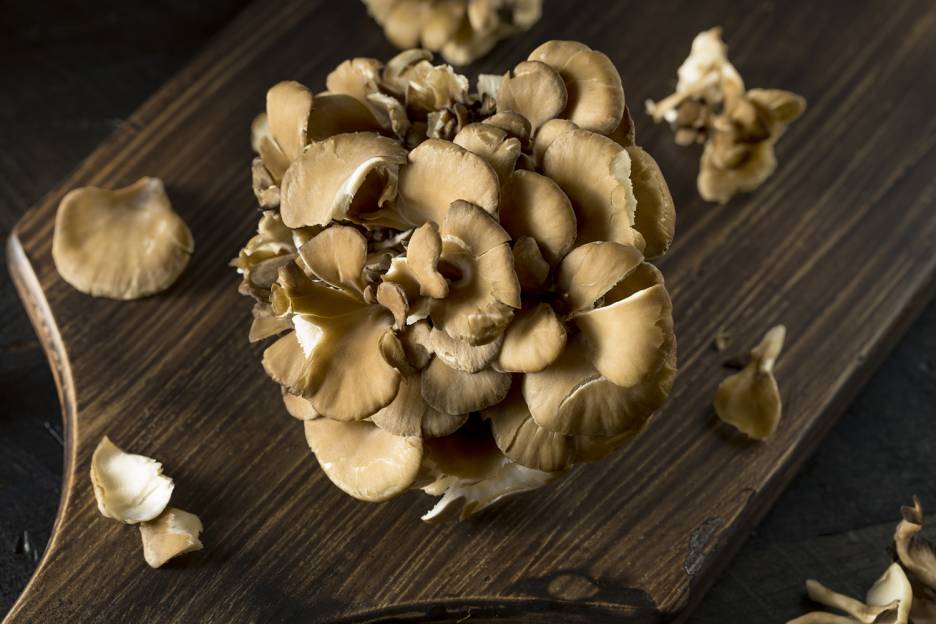
Monday – Friday: 10am – 7pm
Saturday: 10am – 6pm
Sunday: 1pm – 6pm

Used in Asia for centuries for its health- and longevity-promoting benefits, the maitake mushroom (Grifola frondosa), is now considered a “major medicinal mushroom” in the modern world, according to dietitian/nutritionist Brittany Lubeck, MS, RDN.
Research has uncovered maitake’s usefulness in immunity, likely thanks to its polysaccharide and polyphenol content.
“Beta-glucans (types of polysaccharides) are widely present in maitake mushrooms. In laboratory research, beta-glucans have shown antitumor properties,” Lubeck notes. Human clinical trials are needed to back up this information.
“Flavonoids and other types of polyphenols are also present in maitake mushrooms. These act as antioxidants, which may be necessary for disease prevention,” says Lubeck.
Since the discovery, more than 30 years ago, of maitake’s D-fraction, researchers have extracted other polysaccharides, including beta-glucans and heteroglycans, from both the fruiting body and the fungal mycelium (root-like structure) of maitake.
Polysaccharides are maitake’s major immunomodulating components.
Maitake extracts are marketed as dietary supplements that “enhance immune function” and help treat cancer and AIDS. The active constituent in these preparations is beta 1,6-glucan, according to Memorial Sloan Kettering Cancer Center. Human data are limited, however.
“In small trials,” says the MSKCC website, “oral maitake extract appeared to have immunomodulatory effects in postmenopausal breast cancer patients, and enhanced neutrophil and monocyte function in patients with myelodysplastic syndrome,” a group of disorders caused by irregular blood cells.
“D-fraction in maitake mushroom has a strong effect on the immune system,” according to a 2022 WebMD article. “It boosts production of lymphokines (protein mediators) and interleukins (secreted proteins) that improve your immune response.”
Discuss the use of maitake with your healthcare provider before adding a maitake extract to your supplement regimen, especially if:
Maitake can increase bleeding risk as well as lowering blood sugar.
Because of a lack of safety information on the use of maitake by those who are pregnant or breastfeeding, Lubeck suggests they “talk with a healthcare provider before using maitake mushrooms.”